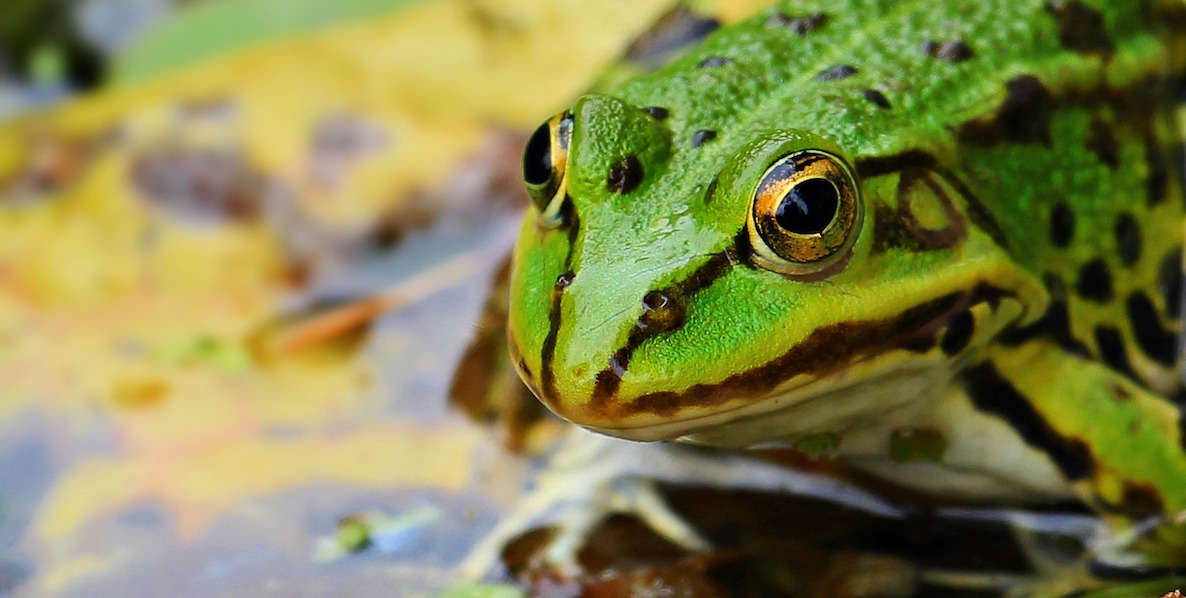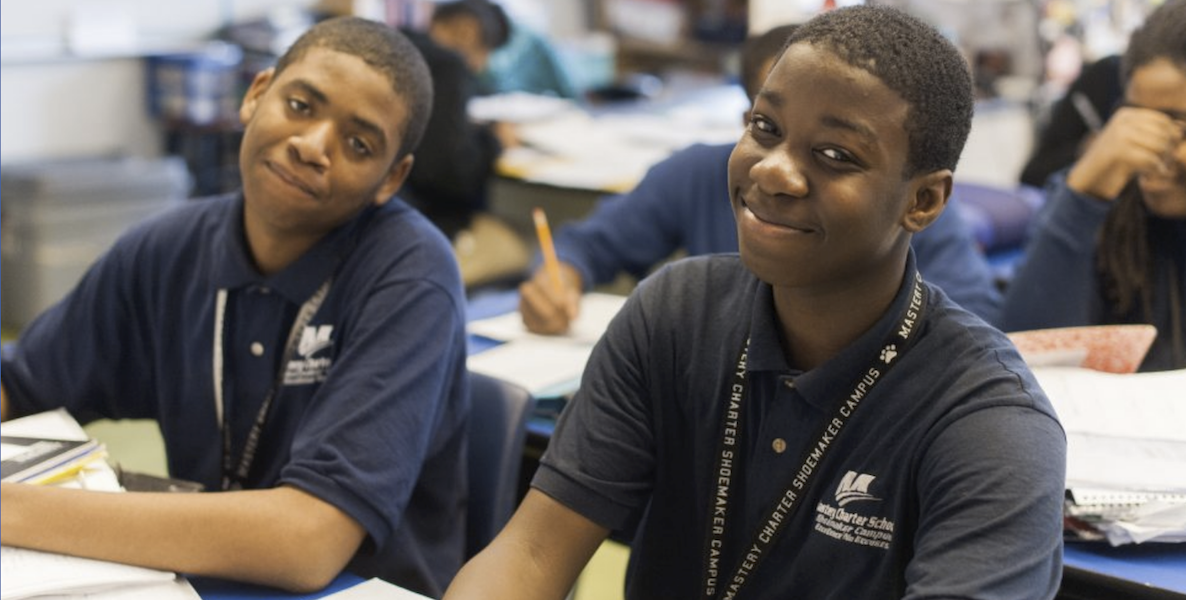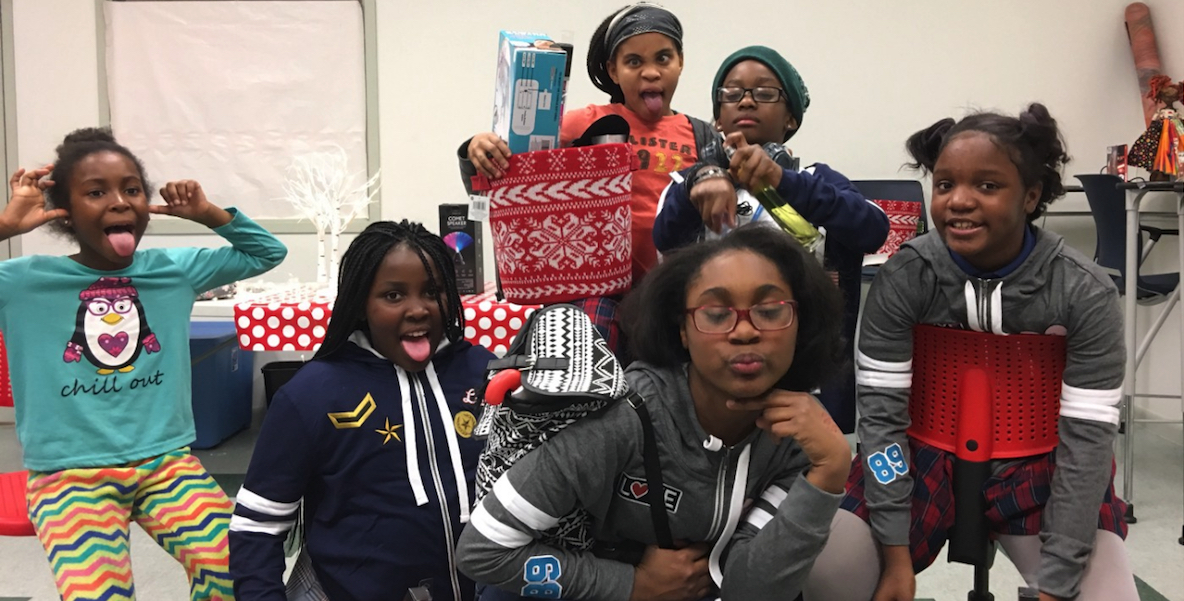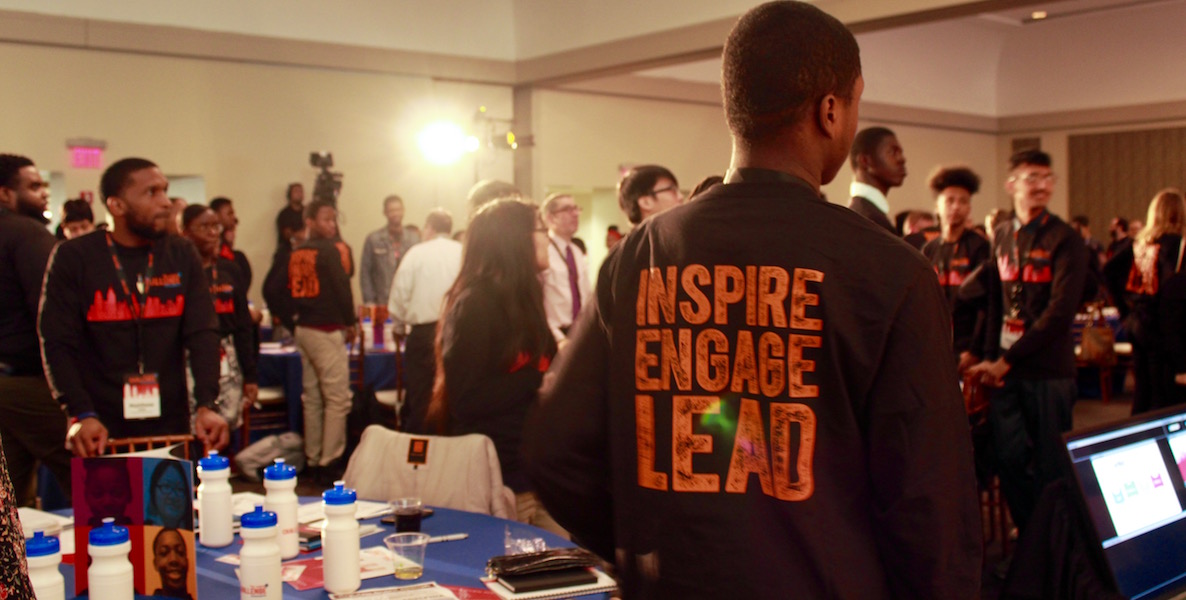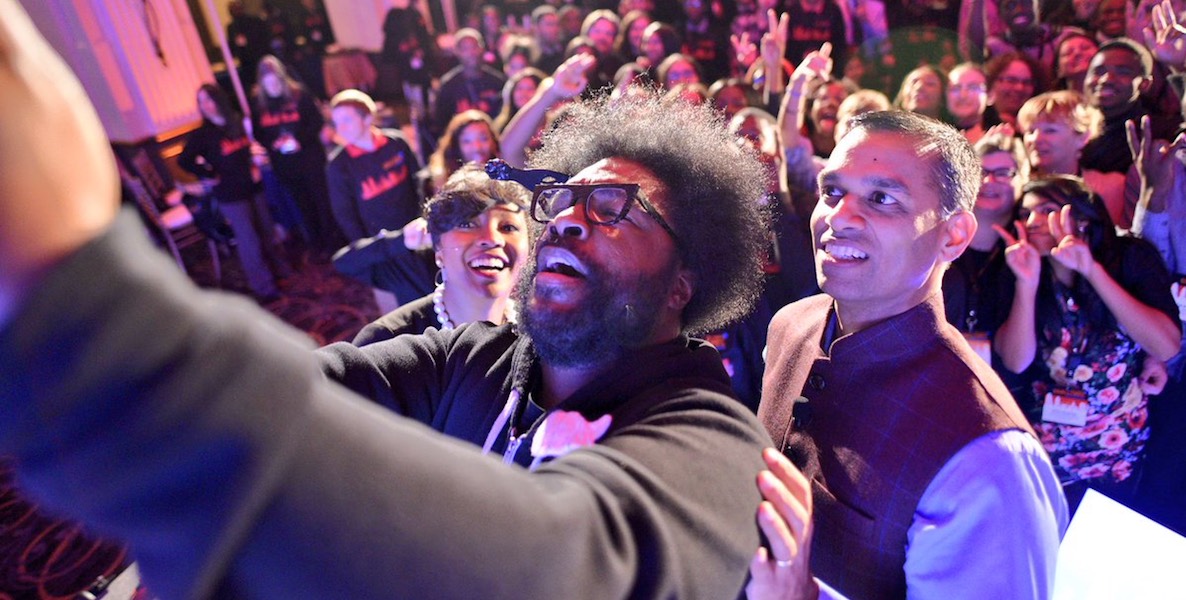“We gon’ be?”
Greg Corbin, award winning poet, activist, and educator—and also the host for the launch of this year’s Aspen Challenge, a problem-solving contest for high school students across the country—looks out into a crowd of 200 teenagers and leans into his mic.
“We gon’ be?”
The entire crowd, without hesitation and in unison, shouts their response.
“Alright!”
Corbin and his audience do this repeatedly, call and response style, to pay homage to Kendrick Lamar’s single “Alright” from his 2015 Grammy-winning To Pimp a Butterfly album. The video, a dark but powerful depiction of police brutality against people of color, became something of an anthem for urban youth, and the song itself shed some light on how to keep up hope throughout.
For this audience of Philly high schoolers, the song resonates on another level too. It plays into the theme of the Aspen Challenge that kicked off at Drexel University Wednesday: finding solutions in the face of adversity.
Students and teachers from 20 different high schools across the city spent the day hearing about five major challenges facing the world today: Environmental issues, bullying, improving health, generational poverty and the school-to-prison pipeline. The eight students from each school, chosen based on criteria not limited to academics alone, were tasked with thinking critically and working as a team as they watched the presentations. Their ultimate goal? Easy. Solve the problems.
The Aspen Challenge, a program of the Bezos Family Foundation in partnership with The Aspen Institute, is an eight-week intensive leadership competition that asks students to come up with creative and sustainable solutions for big world issues. The Challenge, which launched in Los Angeles in 2012, focuses on reaching underprivileged students, representing ethnic diversity, from schools that have at least 25 percent of students who are eligible for free/reduced lunch. Over the years, the program has worked with over 1,800 high school students, nearly 500 educators, and 30-plus community partners and funders.
Last year was the first year the Aspen Challenge made its way to Philadelphia. After the eight grueling weeks of hard work, Sankofa Freedom Academy Charter School, along with two other schools in Philadelphia, took home the win. They addressed a challenge from hunger-fighting organization Copia’s founder Komal Ahmad, who asked the students to design a method of recovering food waste in a scalable way. The team educated their community in Kensington, and through pop up diners they distributed food throughout the neighborhood. They have since become a registered nonprofit with chapters across the city.
This year, the challenges highlight a new batch of problems. Josh Bernstein, survival expert and Indiana Jones-look alike, tasked the students with finding ways to educate the community about the factors of climate change. Jane Golden, founder and executive director of Mural Arts Philadelphia, asked students to use art to raise awareness about the school-to-prison pipeline in communities throughout the city, and to find ways to promote restorative justice and education.
“Keep your eye on the ball,” Golden said to the crowd. “And the ball is you, your path, your journey. I know you’re inheriting this tumultuous world, but I have faith you can make it better. Never ever, ever give up.”
Students also heard from Jamila Harris-Morrison, executive director of ACHIEVEability, who challenged the young Philadelphians to design a program with the goal of disrupting one or more factors contributing to the generational cycle of poverty; Ezekiel Emanuel, global initiatives professor for the Department of Medical Ethics and Health Policy at Penn, who asked students to improve health by bringing positive habits into their communities; and Randi Boyette, senior associate regional director of the Anti-Defamation League, who wants students to reimagine digital tools like social media that often amplify bullying, and instead create online spaces of acceptance and respect.
![]() If your head is spinning at just the thought of taking on these huge issues, that’s ok—leave it to our new professionals. During the Q and A section of each pitch, hands shot up around the room with questions like, “Can we incorporate environmental aspects into your challenge?” or “When things got hard, how did you find a way?” Some went so far as to challenge the challengers, demanding answers from those who had held government positions in the past.
If your head is spinning at just the thought of taking on these huge issues, that’s ok—leave it to our new professionals. During the Q and A section of each pitch, hands shot up around the room with questions like, “Can we incorporate environmental aspects into your challenge?” or “When things got hard, how did you find a way?” Some went so far as to challenge the challengers, demanding answers from those who had held government positions in the past.
Throughout the event, there was no shortage of curiosity in the room. The students responded to these issues with an electric kind of energy that felt empowering and hopeful. After learning about the challenges and heartaches that people all too often face—themselves included—they fell into Beyonce dance breaks and mindful meditation sessions, and they buzzed at their tables with new ideas.
“The bug of excitement and that love for social advocacy is there,” says Curtis Davis, a teacher at Mastery Charter School-Simon Gratz and a former teacher for the winning team at Sankofa.
![]() Nicole Hanson, program manager for the Bezos Family Foundation, says she also witnessed a remarkable amount of community input into the event, from Drexel University offering in-kind space for the events to Mayor Kenney making a request to speak at the launch this week. “We’ve seen an incredible amount of support from the entire community,” says Hanson. “To see this kind of collaboration in the city is unique.”
Nicole Hanson, program manager for the Bezos Family Foundation, says she also witnessed a remarkable amount of community input into the event, from Drexel University offering in-kind space for the events to Mayor Kenney making a request to speak at the launch this week. “We’ve seen an incredible amount of support from the entire community,” says Hanson. “To see this kind of collaboration in the city is unique.”
They’ll certainly need it. By the end of the first week, each team will have to select a challenge, define their community, draft their vision, and set goals. From there they’ll need to focus in on how they’ll design and implement a solution, reach out and engage their target communities, and finally, come April, present to a panel of Philadelphia judges. The winners will be invited to present their work at the national Aspen Institute Ideas Festival this summer.
Tiara Ortiz is a 10th grader from the Franklin Learning Center and a first timer in the program. As she waited in line for lunch with her friends, she laughed and eagerly shared what her plans are for the next eight weeks.
“I want to learn about other people’s perspectives so I can relate to them and learn from them,” she said. “I want to open up to other people and their identities, what they’ve gone through, why they are the way they are, so I can be creative in finding solutions and ways to help.”
At the end of the day, in these students’ hands, it truly does feel like we gon’ be alright.
Photo by Jamie Bogert


